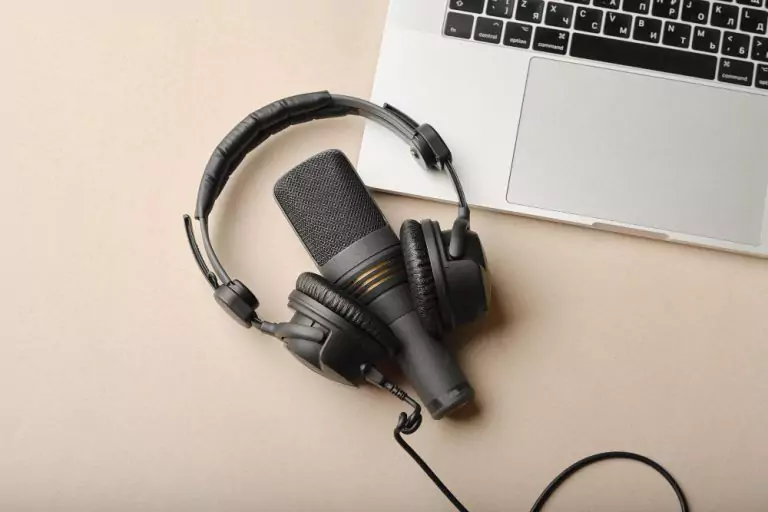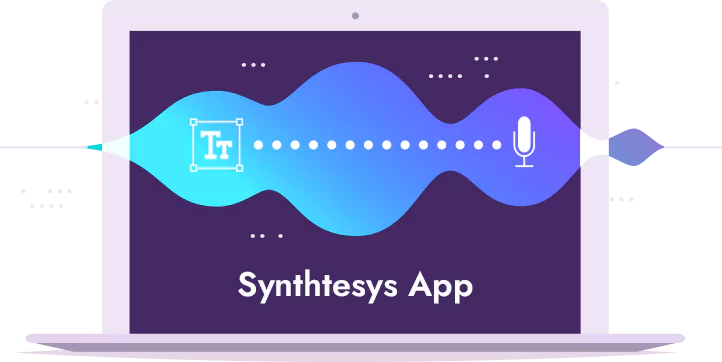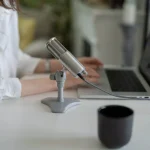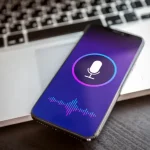
What is Voice Cloning?
by Oliver Goodwin | June 24, 2022
Reading Time: 6 minutes

Voice cloning is something that has been met with much controversy. Some people love the concept of being able to clone their voices, and some people absolutely hate it. But those who hate it for various reasons couldn’t be farther from the truth. Voice cloning is going to have a lot of useful real-world applications in a few years to come.
Love it or hate it, voice cloning has come to stay. For those who don’t know, it is a process where a computer uses software and AI to replicate all the uniqueness of someone’s voice. It does this in order to create an artificial carbon copy of the user’s voice.
Voice cloning is not to be mistaken for other voice processing software like TTS. But what is this voice cloning exactly? And how is it possible? Luckily, this article will help to answer these questions in full detail.
What is voice cloning?
When you hear about voice cloning, you may see people liken this software to other ones like the deepfake voice, speech synthesis, and even Text-to-speech (TTS) systems. However, these are all different types of software that are closely related but are not necessarily the same thing.
As mentioned earlier, voice cloning is the process a computer conducts in order to process the user’s voice and use this processed voice to reproduce a perfectly replicated duplicate. Although it is quite common, this concept is not to be mistaken for other voice-processing systems like TTS systems.
Artificial intelligence has come a long way since its initial inception in 1956. The first of its kind, the reactive machines, was a significant invention for humankind back during that time. However, if you told the pioneer inventors that AI would get this advanced, you’d probably be met with a lot of doubt.
However, the AI innovation is one that has come to stay. Despite its several ups and downs, it’s turning out to be a game-changer for humankind. Thousands of jobs are being created daily, and multiple tasks are being automated. One of these largely automated tasks is voice cloning. V
Voice cloning is a concept that has yet to reach its full potential. Day after day, software developers are coming up with new and improved software that can further hack the concept of AI. As they do this, the voice cloning process will automatically improve.
Since that time, three more types of AI have been created and these are the limited memory AI, the theory of mind AI, and the self-aware AI. All of these are different concepts that are still being explored to this day. But are all these involved in the process of voice cloning?

How is voice cloning possible?
The intricacies involved in the development of voice cloning software are constantly a topic of interest in the AI community. Lots and lots of people are curious to know what type(s) of AI, hardware, and software make voice cloning possible. Here are all the ways voice cloning becomes possible:
- Extremely powerful hardware
Hardware is the first thing you have to look out for if you want to make voice cloning possible. Not surprisingly, this is what a lot of people skip taking into account. Even professionals often undermine the importance of powerful hardware.
Several computer-creating and IT-focused companies constantly work on improving their hardware. This hardware includes the CPU, the RAM, GPU, and so on. So many computer hardware has gone through a lot of advancement. Year after year, they keep getting improved and fine-tuned to better match the needs of the computer world. For example, the highest amount of RAM available in Windows laptops in 2005 was 2GB. Just twelve years later, this figure has sharply risen to a whopping three terabytes.
That said, voice cloning is only possible on laptops with powerful hardware. It won’t work well, if at all, on computers with regular hardware, regardless of how much you try to increase available disk space or add extra memory so long as the base model is lackluster.
- Extensive voice recognition training
Even if you have the hardware to run this feature, you still need to go through one tedious task; participating in extensive voice recognition training. You need to do this in order for the computer to capture all the nuance and variance in your voice. Without a doubt, this process does take a lot of time. However, it’s worth it.
The information that the computer model would get from your voice would be stored in an embedding, to be reused later to replicate your unique voice as much as possible.
- A Big Use Of AI
As stated earlier, there are four types of AI right now. These are the reactive machines, limited memory, theory of mind, and self-aware AI. Right now, developers have made a lot of headway into the limited memory and reactive machines. The theory of mind and self-aware AI? Not so much.
Right now, voice cloning makes good use of the reactive machines and the limited memory AI. It uses reactive machines to react and store the audio coming in and the limited memory to make better predictions when it comes to voice replication.
When developers figure out how to further develop and make further use of the theory of mind and self-aware AI, it will make this software able to copy your voice a lot more accurately.
What are the benefits of voice cloning?
- It Increases opportunities for voice personalities and influencers.
With this voice cloning feature, more and more voice influencers are able to get more jobs. Voice personalities have the opportunity to replicate their voice with this software, reducing the time they spend on jobs in total.
- Voice Cloning Allows You Dig Up Voices From the Past
Do you want to remember how past historical voices would have sounded? Powerful voices of figures like Abraham Lincoln and Martin Luther King are beginning to be forgotten.
Luckily, voice cloning allows you to use your computers to understand how they sounded. Voice cloning also allows the use of recorded content to replicate a voice.
- Content Localization.
Since communication models were invented, there have always been problems with content localization. Although the official language is English, there are some countries with indigenes who don’t understand this seemingly foreign language. What would solve this problem? Voice cloning.
This software would allow for the localization of content from major media outlets like television, the radio, and the internet.

What are the cons of voice cloning?
With all the pros of voice cloning, it’s easy to forget that it has cons too. Some of its cons include:
- Difficulty in telling the difference between a fake and an original voice
With the accuracy at which voice cloning will operate in the next couple of years, who would be able to easily differentiate a real voice from a fake one? This worry remains a topic of interest in the computer-enthusiast community.
- There may be an increase in crime rate
Stealers can use this voice cloning software to get into guarded areas by using this voice to speak passwords. That said, developers should put extra measures to prevent this from happening.
- Heightened security risks
With this voice cloning software, hackers may be able to break into security systems that require voice activation. All they would need to do is to search for the voice they want to copy on social media. This voice would be run through this software, and an exact copy would be produced. They can use this copy to speak passwords that open up guarded possessions on the internet.
How to spot voice cloning?
As scary as the cons may sound, there are still ways to spot voice cloning. The first and more accurate way to do this is to equally use AI-based software to detect computer-generated voices. You can use this software to identify artifacts that you can’t find in a natural voice.
Alternatively, you can carefully listen for breaks in transcription that computers inevitably make. No matter how good the computer replicates voices, it can never be as unique as an original voice.

What’s the best voice cloning app?
If you search the internet for good cloning apps right now, you will find dozens of software. These are substandard and will not give you the voice cloning feature you want.
One of the best, however, remains the voice cloning available here at synthesys.io. We use the best software and technological innovations known to man in order to replicate voices as accurately as possible. Our app is extremely user-friendly, and it constantly uses your voice as feedback in order to make its voice cloning even more accurate.
Conclusion
Voice cloning is an amazing concept that hasn’t been fully explained nor explored yet. Simply put, it’s a software that would allow you to accurately duplicate your voice.
There are several benefits and downsides to using this software, but the discoveries being made on the voice cloning possibilities remain endless. Synthesis.io is currently the best voice-cloning software that offers a perfect duplication of how your voice sounds like.




